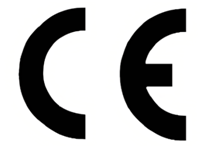
 您当前的位置:Our Services>
Certification Services>
Europe
您当前的位置:Our Services>
Certification Services>
Europe
Our Services


+86-769-83085888
+86 135 5499 1454


CE Certification
Certification Introduction
CE is abbreviated from the French "Communate Europpene", which means the European Community, referred to as the European Union. The CE mark is a legally mandatory mark in the EU market. Whether it is a product produced by an enterprise within the EU or a product produced in other countries, in order to circulate freely in the EU market, the CE mark must be affixed to indicate that the product complies with the EU's "New Approach to Technical Harmonization and Standardization" (The New Approach to Standardization). The basic requirements of the technical harmonization and standardization) directive.

Those without the CE mark shall not be sold on the market. Products that have been affixed with the CE mark and entered the market shall be ordered to be withdrawn from the market if they are found to fail to meet the safety requirements. Those who continue to violate the CE mark regulations of the directive will be restricted or prohibited from entering the EU market or forced to withdraw from the market.
CE Certification Basic Information
• Is it mandatory: mandatory + self-declaration
• Certificate validity period: no validity period
• Factory inspection requirements: no requirements
• Licensee Requirements: No Requirements
• Technical information: Voltage and frequency AC 230V, 50Hz /60Hz, plug European standard CEE 7/7 & 7/16 or national standard
CE Compulsory Certification and CE Self-Declaration Instructions
Most products can be affixed with the CE mark if the manufacturer adopts a self-conformity declaration method; some products with relatively higher risks need to be assessed by a third-party agency authorized by the EU, that is, a Notified Body. Only then can the CE mark be affixed.
Applicable Area
CE certification can be found in 33 special economic zones in Europe, including: EU 27, 4 countries in the European Free Trade Zone, and the United Kingdom and Turkey. Products with CE marking can circulate freely in the European Economic Area (EEA).
The specific EU EU 27 countries list is: Belgium, Bulgaria, Czech Republic, Denmark, Germany, Estonia, Ireland, Greece, Spain, France, Croatia, Italy, Cyprus, Latvia, Lithuania, Luxembourg, Hungary, Malta, Netherlands, Austria, Poland , Portugal, Romania, Slovenia, Slovakia, Finland, Sweden.